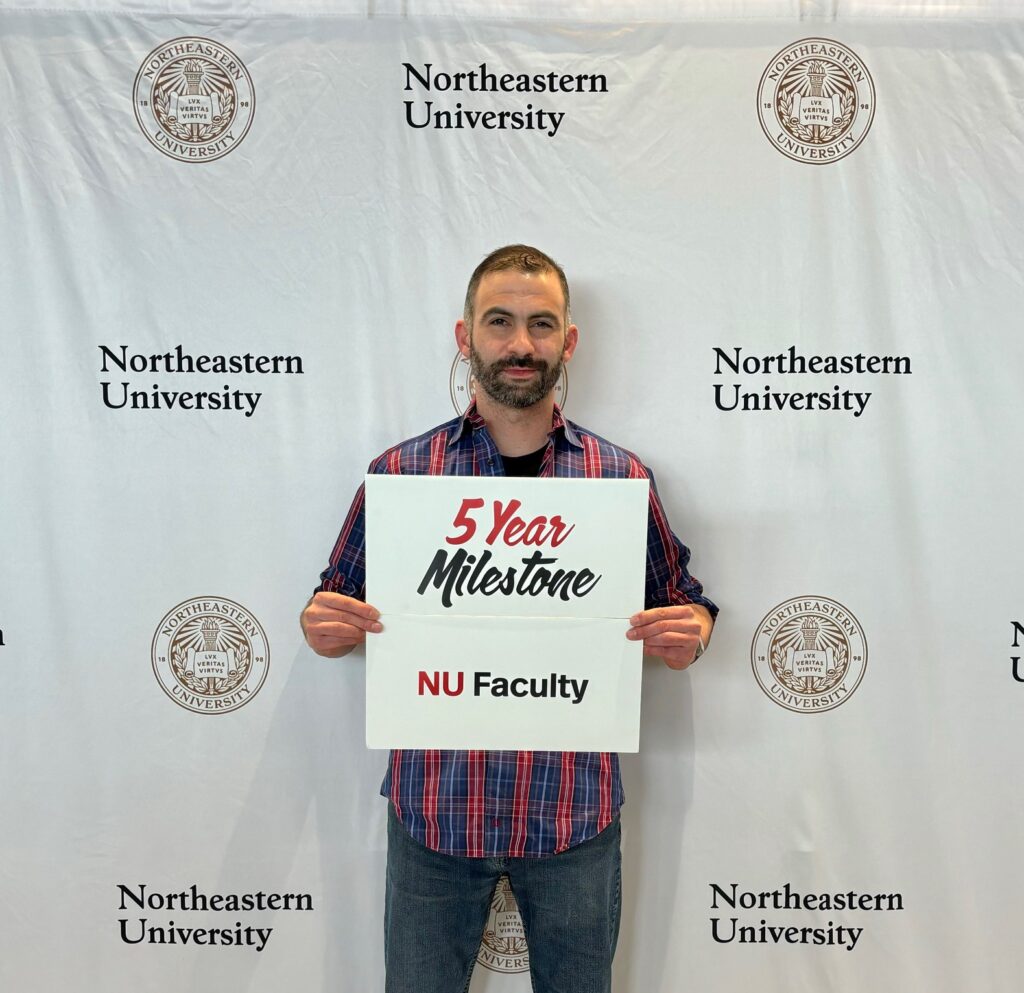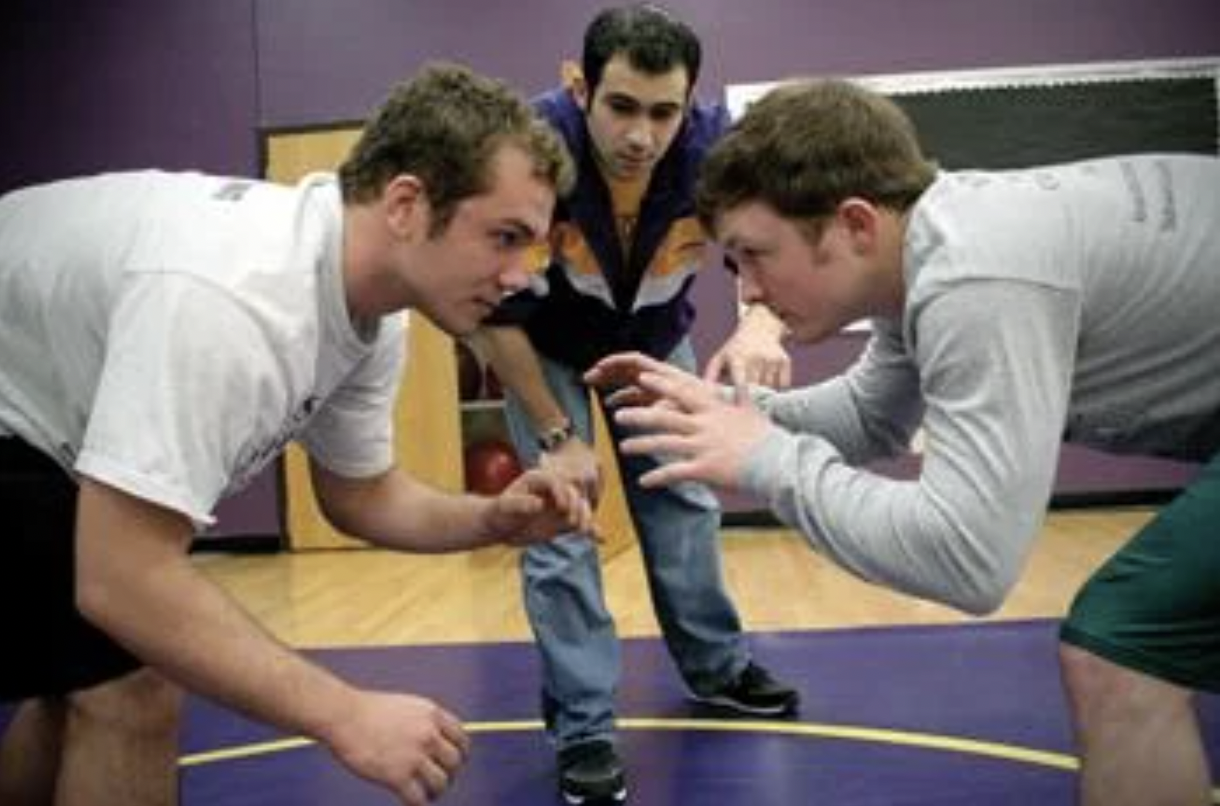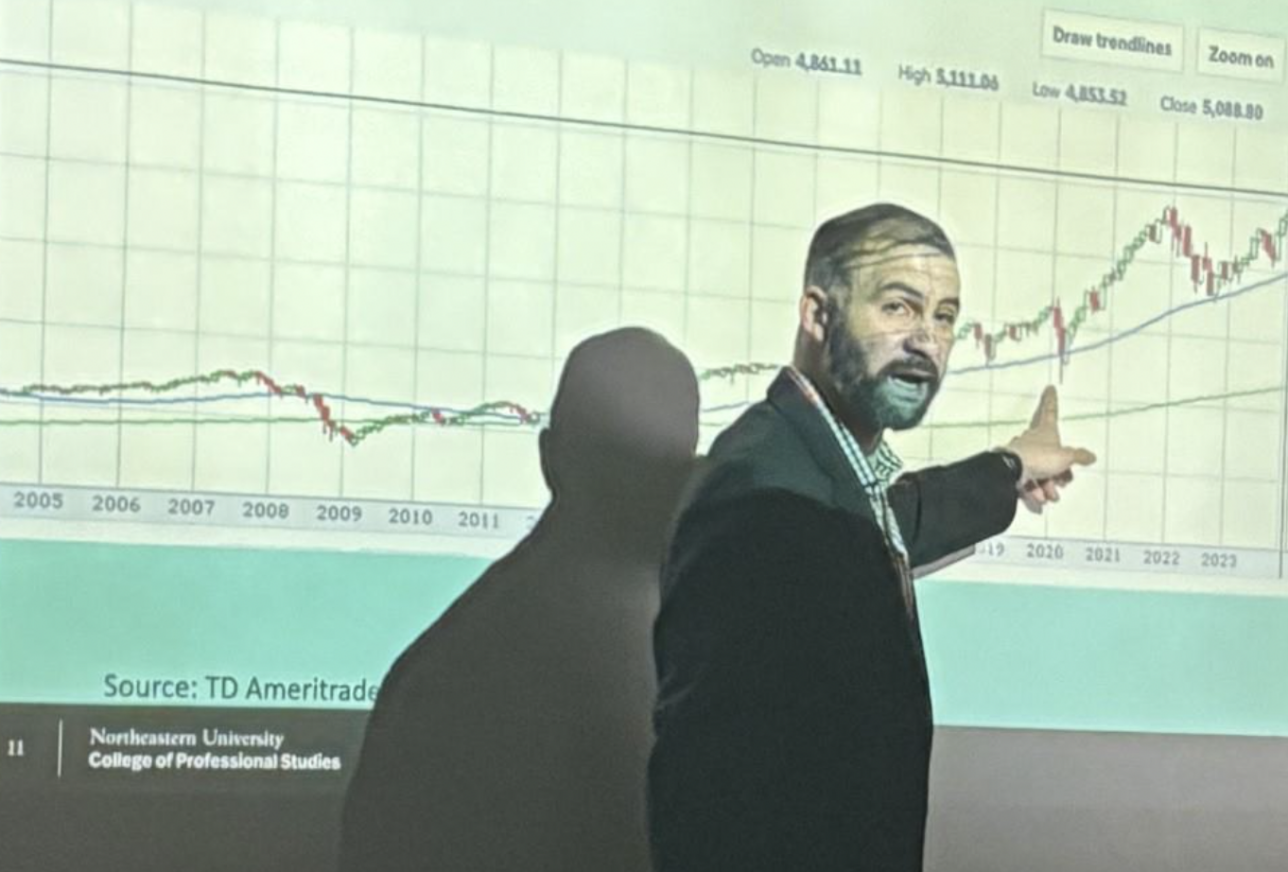Spotlight: Fareed Hawwa, PhD, Assistant Teaching Professor
Fareed Hawwa, Assistant Teaching Professor, enriches his students’ learning experience with his extensive real-world financial expertise. A significant career in the finance sector preceded his time at Northeastern University in Foundation Year, one of a variety of pathway programs offered by the College of Professional Studies (CPS).

Hawwa began his career as an equities trader in New York City. He also occupied other roles such as analyst, partner, and head of trading at a financial firm in Chicago, before transitioning to his current position at CPS. In these various professional capacities, he had to hone his knowledge of mathematics and apply it to his management of both technical analysis and risk management methodologies, utilizing logic and quantitative analysis. He led trading operations and strategic initiatives for funds valued at $250 million in assets under management during this time. The experience of managing a high-net-worth portfolio helped him acutely understand the mechanics of money. He now shares this knowledge in the classroom.
History
Hawwa’s upbringing took place in Rhode Island. During his high school years, he participated in wrestling and garnered attention from a coach at New York University (NYU). Enrolling at NYU, he devoted himself to the sport, recognizing its rigorous demands. Hawwa frequently undertook the arduous task of cutting weight by up to ten pounds in just a few days to meet the requirements of specific weight classes, demonstrating extraordinary discipline of both body and mind while maintaining his academic performance.
During his time at NYU, he made the decision to major in mathematics. Expressing his sincere affinity for the subject, he said,
“While some find math boring or difficult, for me, it brings joy.”
Fareed Hawwa
Approaching the completion of his bachelor’s degree at NYU, Hawwa knew that he wanted to obtain a doctoral degree in mathematics.
He decided to attend Louisiana State University (LSU) for his master’s and PhD degrees. Halfway through his studies there, Hawwa was awarded a National Science Foundation GK-12 fellowship, contingent upon his commitment to teach each semester while pursuing his doctoral studies.
“There were six times I looked for flights home because I was going to quit; it took a lot of discipline to stay the course.”, he said. But Hawwa realized that he had to want to put in the work to get the result. “This realization really shaped me as both a jock and an academic”, he said.
In the initial year of his graduate studies, he taught mathematics at a local alternative high school, an institution for students facing suspension within the public school system.
“The students had different challenges, and I witnessed some unfortunate situations, such as students being summoned to court during class time. I always assumed that all students desired to attend school, but that isn’t always the reality.”
Fareed Hawwa – Reflecting on his Experience
In addition to teaching, Hawwa also resumed wrestling. His unwavering commitment to the sport propelled him to a coaching role for the NCWA LSU wrestling team.

During the next two years in his doctoral program, he continued to coach wrestling, and he also transitioned to teaching undergraduate courses on campus.
He expressed satisfaction with this shift, stating, “I had the opportunity to engage with students who possessed a genuine interest in mathematics and were able to be fully vested in their academic journey.”
In the course of his time at LSU, Hawwa was a three-time recipient of the Mathematics Department Teaching Excellence Award for his work with students.
Career
In 2010, after successfully defending his PhD dissertation, Hawwa moved back to New York and bartended before landing a job at a trading firm. Shortly after this, he got an offer to join a hedge fund in Chicago as an analyst, later becoming partner and head of trading.
Hawwa describes his time at the hedge fund as exciting. While the role was challenging, the substantial salary served as an attempt to rationalize the extensive hours and the inevitable sacrifice of work-life balance inherent to such demanding positions. Despite the financial compensation, he came to realize that mere pursuit of monetary gain was not his primary motivator.
In March 2018, Hawwa left the firm and took a year off work. He took time to look inward and got certified in transcendental meditation. “These pursuits helped me to identify my true passion of teaching”, he said.
Foundation Year
In 2019, now back in Rhode Island, Hawwa applied for jobs and seized an opportunity to teach within Northeastern University’s Foundation Year, a program that serves students in the city of Boston in transitioning from high school to college. Administered by the College of Professional Studies, it offers rigorous academic coursework within a supportive cohort environment during students’ initial college year. Completion of the Foundation Year enables students to progress into a degree program at Northeastern University. The program’s design aims to maximize student potential, offering small classes and individualized advising. Additionally, the cohort model fosters a strong sense of community, supplemented by provisions such as textbooks, technology access, and a dining plan providing meals on campus throughout the year. The program boasts a 92% average matriculation rate for students who successfully complete the program and meet progression standards and continue at Northeastern. Many of these students successfully graduate with a bachelor’s degree.
Hawwa was hired by Foundation Year to teach a variety of math classes. The very first class he taught, Foundations of Math, started a few weeks after he was hired. He has since taught other classes, including: College Algebra, PreCalculus, Calculus 1, Calculus 2 recitation, and most recently, Personal Finance.
As a pragmatic and empathetic educator, Hawwa places a high value on fairness and respect in his interactions with students. He maintains accountability among students while being mindful not to place undue pressure on them.

He emphasized, “Especially during the COVID-19 pandemic, if a student didn’t have their camera on, I didn’t press the issue. I like to employ a deeper concentration on the subject matter itself and what support they require from me.”
As Hawwa taught his math classes that first year, his colleagues at CPS got to know him better. They learned that he used to work in finance and he started to attract financial questions from them, like how to change allocation in a 403b retirement plan to maximize return, how to open a Roth IRA account, or whether they should purchase cryptocurrency.
Seeing that Hawwa was becoming known for his professional expertise, Director of the Program, Martha Loftus, suggested that Hawwa teach a course around financial literacy.
“Fareed’s exuberance for helping others better understand their personal finance was clear when he started at CPS. The fact that he did so with industry experience was an added benefit. We’re always looking to add new courses to the Foundation Year curriculum, so it made sense to add Personal Finance and draw upon his energy, knowledge and commitment to the subject. Financial literacy is an important skill for everyone. The Foundation Year holistic model of student success prompts us to always be thinking of ways we can help students thrive in and out of the classroom”
– Martha Loftus
In his Personal Finance course, Hawwa shows students skills like how to read a stock chart, and he explains the dangers and benefits of compound interest. For many of his students, the discussion he has with them about the importance of a healthy FICO score is the first time they are introduced to the concept.
Hawwa says that teaching is ‘the highest honor of [his] life. It’s taught [him] a lot about humility and empathy.’ He said, “some students have told me that the way they viewed personal finance before they took my class was stressful, but now that they understand the basics, they are able to rise above it and pursue financial success.”
“Math is like life. In math, you need humility, or it’ll eat you up.”
Fareed Hawwa
Fareed’s Money Management Top Tips
- On investing: “Time and compounding are what will really make people money, as opposed to buying stocks they heard about on the train.”
- Understanding ‘compound interest’ is key to financial success.
- If you allow money to control your life, you risk missing out on other things that bring you joy.
- Some people are so poor, all they have is money.
- Develop a personal financial practice.